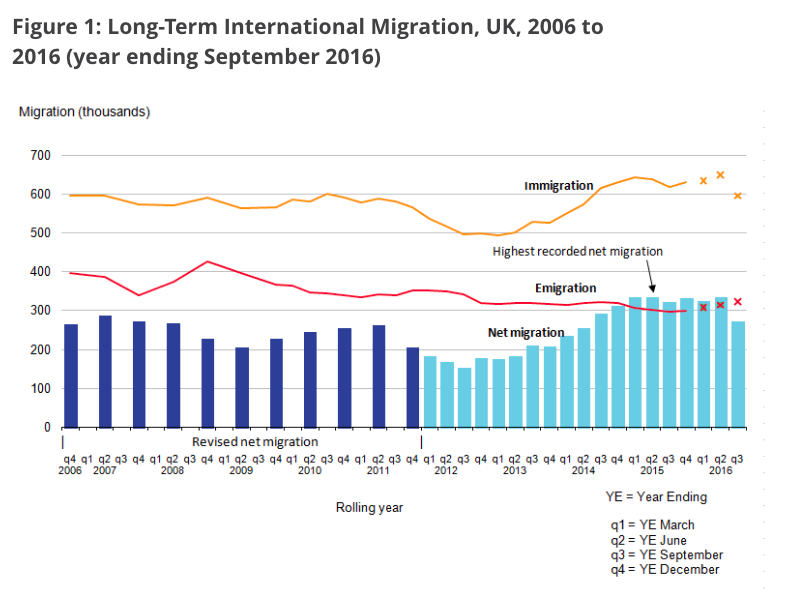The number of people coming to the UK from Eastern Europe has dropped since the Brexit vote

Reuters
Immigration into the UK fell to its lowest level in two years in the year ending in September 2016, according to the latest migration figures released by the Office for National Statistics on Thursday.
Net migration in the UK was +273,000, with immigration into the country estimated at 596,000 people, and emigration at 323,000.
The immigration figures included 268,000 EU citizens, 257,000 non-EU citizens and 71,000 British citizens.
ONS data notes that the net number of citizens from so-called EU8 nations —Estonia, Latvia, Lithuania, Poland, Czech Republic, Slovakia, Slovenia, Hungary — coming to the UK, has fallen in the months since the Brexit vote. However, the number of Romanian and Bulgarian citizens has increased.
"This is the first release to contain long-term international migration estimates including three months of data following the EU referendum. Although we have seen a fall in net migration of EU8 citizens there have been continued increases in immigration from Romania and Bulgaria, so it is too early to say what effect the referendum result has had on long-term international migration," said the ONS' Head of International Migration Statistics, Nicola White.
The number of EU8 citizens coming to the UK dropped from 68,000 at the last reading to 58,000 today.
So-called EU2 immigration — from Bulgaria and Romania — "showed a statistically significant increase of 19,000 compared with the previous year and now accounts for 28% of EU immigration," the ONS said.
Here is the ONS' chart showing the headline figures as part of the 10-year trend:

Office for National Statistics
The ONS' newest data also showed that the number of people moving to the UK from outside the EU was virtually identical to the number from within the 28-nation bloc.
"Net long-term international migration was estimated to be +273,000 in YE Sept 2016; comprising +165,000 EU citizens, +164,000 non-EU citizens and -56,000 British citizens," the ONS said.
This marked the first time that EU migration surpassed the number coming to the UK from outside the bloc.
For the past seven years, the British government has consistently missed its target of bringing net migration down to below 100,000, and Thursday's data shows that it may continue to do so for a while yet.
Immigration was far and away the most important issue for those voting for Brexit, multiple polls showed, but recent data from Nielsen showed that Brits are now far more worried about the state of the economy than they are about immigration.
NOW WATCH: A linguist explains why translators can't understand Trump
See Also:
The government faces a huge headache to protect Brits living in the EU post-Brexit
Blair is only filling the pro-Remain void left by his successors
SEE ALSO: The dynamics of what Britons worried about before Brexit have radically shifted since the vote

 Yahoo News
Yahoo News 

